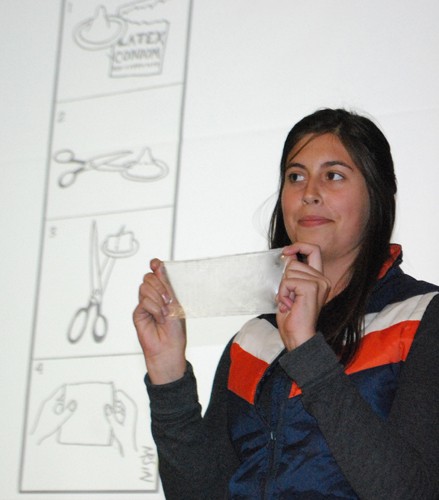The UA improved its national ranking in sex health services.
The annual Trojan Sexual Health Report Card grades and ranks more than 140 universities on their sexual health and education resources. The UA ranks 34 this year, higher than UA’s number 70 ranking in 2009.
Schools were given grades in 12 categories, ranging from condom availability to outreach programs. The UA received a 2.78 cumulative grade point average on a 4.0 scale.
“”What we’re looking for and think is even more important is the information and resources offered to the students,”” said Bert Sperling, president of Sperling’s BestPlaces, the independent research firm in charge of the study.
Schools filled out forms about their services to submit to the study. Recent college graduates with the firm also navigated the schools’ website to judge usability.
Lee Ann Hamilton, assistant director of Health Promotion and Preventive Services for Campus Health Service, said she did not know why the UA moved up significantly in the ranking.
“”We may have done a better job communicating all that we have to offer here,”” Hamilton said. “”That would be my guess, just more information conveyed better.””
The UA received two “”A’s”” in the sexual assault programs and the anonymous advice categories. Hamilton and other employees write the SexTalk column found each week in the Arizona Daily Wildcat. Students can anonymously submit questions on any sex-related topic.
“”I think it provides a lot of good information,”” Hamilton said. “”There is a lot of information out there on the Internet, but this is something that’s written by professional educators.””
Sperling said the category was one of the more “”rigorous”” in the study.
“”That’s something a lot of schools don’t have,”” he said.
The UA received an “”F”” in the student peer group category, which judged the availability of educational programs led by students. The Women’s Resource Center has a peer-to-peer program, Sex Ed, College Style, which is sponsored by Campus Health.
“”I don’t think it is mentioned on our website,”” Hamilton said in response to its absence from the study.
Students trained by Planned Parenthood and Campus Health speak to people in residence halls and to clubs. They also host several presentations and trivia nights each year.
“”It’s kind of a full spectrum sex-ed,”” said Jessica Whitson, a senior majoring in Spanish and student co-director for the Women’s Resource Center. “”We try to make it a more active presentation.””
The UA received “”B’s”” in categories for sexually transmitted infection testing and contraceptive availability.
“”We could rank higher if we gave out condoms,”” Hamilton said. “”We frankly do not have the money to supply a campus of 37,000 people with free condoms, so we sell condoms at really low cost.””
Hamilton said she regards the report as a publicity tool for Trojan.
“”I think that it’s good that they do it, but I always keep in mind that their main goal is to keep their name in front of the customer, not necessarily to do a peer-reviewed research study,”” Hamilton said.
She said the ranking helps Campus Health consider its offerings.
“”I think it does serve as a good reminder to say, ‘Hey, what are we doing? Can we do things better?'”” Hamilton said. “”It always comes down to resources: staff, time and budget.””
Some students said they were not aware of the services offered by Campus Health but see information on posters around campus.
“”I pay attention to them, but I just kind of brush it off eventually,”” said pre-business freshman Elizabeth Cho. “”I haven’t really needed to go there yet.””
Campus Health is trying to reach students in new ways, most recently with its Facebook page.
“”While sex can be a wonderful thing, a lot of people put themselves at risk,”” Hamilton said. “”They can reduce those risks by getting education and being smart.””









